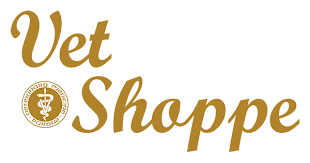Medicine of Aquatics, Amphibians, and Reptiles Symposium
October 18-19, 2025
The Purdue University Medicine of Aquatics, Amphibians & Reptiles (MOAAR) Symposium offers veterinary professionals and students the opportunity to enhance their expertise in the care of aquatic, amphibian, and reptilian species. Participants will gain valuable insights from leading experts in the field.
Unable to join us on campus? Register for our virtual option!
Schedule
Saturday, October 18, 2025
Registration
9:00–9:45 a.m. EDT|Lynn Hall FoyerReptile Keynote: Journey to ACZM Board Certification
9:45–10:50 a.m. EDT|Dr. Olivia Petritz|Lynn 1136Herptile Handing, Examination, and Clinical Techniques (Pre-Lab 1R)
11:00–11:50 a.m. EDT|Dr. Laura Adamovicz|Lynn 1136|Track(s): Reptile/AmphibianAssessing Health in Fish
11:00–11:50 a.m. EDT|Dr. Maria Sepulveda|Lynn G167|Track(s): AquaticReptile Cadaver Lab, Anatomy and Techniques
12:00–1:20 p.m. EDT|Dr. Thompson and Dr. Adamovicz|Track(s): Wet Lab 1R - Reptile/AmphibianFish Biopsy and Sampling
12:00–12:50 p.m. EDT|Dr. Bartolomeo Gorgoglione|Lynn G167|Track(s): AquaticDo Marine Turtles Talk?
12:00–12:50 p.m. EDT|Dr. Frank Paladino|Lynn 1136|Track(s): Reptile/AmphibianLunch
1:00–1:50 p.m. EDT|Foyer-Ground Floor by Continuum|Outside Lynn 1136Ocean Acidification and Warming
2:00–2:50 p.m. EDT|Dr. Andrew Stamper|Lynn G167|Track(s): AquaticReptile Therapeutics
2:00–2:30 p.m. EDT|Dr. Olivia Petritz|Lynn 1136|Track(s): Reptile/AmphibianReptile and Amphibian Euthanasia
2:30–2:50 p.m. EDT|Dr. Olivia Petritz|Lynn 1136|Track(s): Reptile/AmphibianHolistic Conservation Program
3:00–3:50 p.m. EDT|Dr. Andrew Stamper|Lynn G167|Track(s): AquaticReptile and Amphibian Imaging (Pre-Lab 2R)
3:00–3:50 p.m. EDT|Dr. Olivia Petritz|Lynn 1136|Track(s): Reptile/AmphibianInfectious Diseases of Wild North American Reptiles
4:00–4:50 p.m. EDT|Dr. Laura Adamovicz|Lynn 1136|Track(s): Reptile/AmphibianReptile Diagnostic Imaging Cases Lab
4:00–5:20 p.m. EDT|Dr. Steven Thompson|Track(s): Wet Lab 2R - Reptile/AmphibianFish Anesthesia and Surgery (Pre Lab 2A)
4:00–4:50 p.m. EDT|Dr. Jennifer Herbert|Lynn G167|Track(s): AquaticEuropean Aquaria and Bamboo Shark Case Presentation
5:00–5:25 p.m. EDT|Brittney Graebner|Lynn 1136|Track(s): AquaticKoi Surgery
5:00–6:20 p.m. EDT|Dr. Herbert and Dr. Corriveau|Track(s): Wet Lab 2A - AquaticHelp the Hellbenders and Save the Snakes
5:30–6:20 p.m. EDT|Dr. Steven Thompson|Lynn 1136|Track(s): Reptile/AmphibianSocial Networking / Receptionist
7:00–8:30 p.m. EDT|Hampton InnSunday, October 19, 2025
Registration
8:00–8:45 a.m. EDT|Lynn Hall FoyerKeynote: Introduction to Marine Mammal Medicine
8:45 a.m.–9:50 p.m. EDT|Dr. Karisa Tang|Lynn 1136Chelonian Medicine and Surgery
10:00–10:50 a.m. EDT|Dr. Alyssa Scagnelli|Lynn G167|Track(s): Reptile/AmphibianShark and Ray Medicine (Pre-Lab 3A)
10:00–10:50 a.m. EDT|Dr. Karisa Tang|Lynn 1136|Track(s): AquaticSea Turtles
11:00–11:50 a.m. EDT|Dr. Andrew Stamper|G167|Track(s): Reptile/AmphibianCommon Viral and other Diseases of Fish
11:00–11:50 a.m. EDT|Dr. Bartolomeo Gorgoglione|Lynn 1136|Track(s): AquaticReptile Emergencies
12:00–12:50 p.m. EDT|Dr. Julia Becker|Lynn G167|Track(s): Reptile/AmphibianDogfish / Shark Anatomy and Necropsy
12:00–1:20 p.m. EDT|Lynn 2214|Track(s): Wet Lab 3A - AquaticCases | Sea: Experiences of an Aquarium Vet
12:00–12:50 p.m. EDT|Dr. Márton Hoitsy (Zoom)|Lynn 1136|Track(s): AquaticLunch
1:00–1:50 p.m. EDT|Foyer-Ground Floor by Continuum|Outside Lynn 1136Field Trip: Shrimp Aquaculture Field Trip or Hellbender Field Trip
1:45–3:15 p.m. EDT|Off CampusShrimp Aquaculture Field Trip: Time: 2:30-3:15 p.m. located at RDM Aquaculture LLC, 101 N 850 E Fowler, IN.
Indiana’s only shrimp farm. Started in 2010. If you are interested in learning about shrimp, aquaponics, and water quality management, this is the tour for you. You will get a tour of the facility, a PowerPoint presentation about shrimp farming and maybe even get to sample some shrimp. What makes RDM so unique is that we used a RAS (Recirculating Aquaculture System) using a heterotrophic bacteria based water or ZEAH (Zero Exchange Aerobic Heterotrophic System) or bio flock. It basically means we reuse our water for over 11 years. We have built a bacteria system that maintains the water quality for the shrimp, by converting ammonia to nitrite and nitrite to nitrate. In essences we are duplicating the ocean to the best of our ability indoors.
Hellbender Field Trip: Time: 2:30-3:15 p.m. located at the Aquaculture Research Lab, 5950 ASREC Lane West Lafayette, IN.
Purdue's Help the Hellbender program began back in 2007 after discovering less than 50 Eastern Hellbenders throughout historic Indiana ranges. With the help of the Indiana Department of Natural Resources and Dr. Rod Williams of Purdue's Forestry and Natural Resources Department, the Help the Hellbender program was able to begin captive rearing efforts in 2012 for the state-endangered salamander. Purdue's Aquaculture Research Lab (ARL) is Indiana's largest captive-rearing and Hellbender research facility. Our program cares for many different life stages (from egg to juveniles) and is reared for reintroduction in Indiana and Kentucky. ARL has 2 environmental chambers for egg rearing, larval development/research, and juvenile research; as well as 2 (soon to be 3) artificial streams to mimic river conditions. Stop by to see the newly hatched larvae and our juveniles! You won't be disappointed.
Speakers
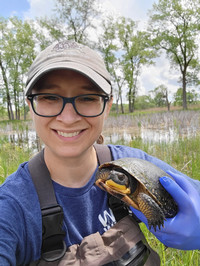




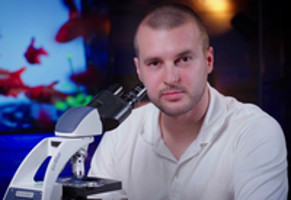

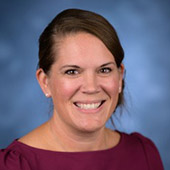
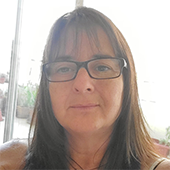




West Lafayette and Lafayette Hotels
Hampton Inn and Suites
The Hampton Inn and Suites is located just half a mile from the Purdue campus. Historic Lafayette downtown district is just across the river with access to local restaurants and shops. Parking is free.
Address: 160 Tapawingo Dr., West Lafayette, IN 47906
Phone: 765-269-8000
Drury Inn & Suites
The Drury Inn & Suites Lafayette, IN Offers free hot breakfast, free Wi-Fi throughout the hotel and the 5:30 Kickback® with evening snacks and cold beverages. Conveniently located at I-65 and South Street, the hotel is just 5 minutes from downtown Lafayette and 5 miles from Purdue University.
Address: 4110 South State St., Lafayette, IN 47905
Phone: 765-447-7707
Homewood Suites by Hilton
Classic extended stay hotel with fully equipped kitchens & free WiFi plus a pool and hot tub. Located 5 miles from Purdue.
Address: 3939 South State St., Lafayette, IN 47905
Phone: 765-448-9700
Hampton Inn Lafayette
Modern hotel with free WiFi plus free breakfast and a pool. Located 5 miles from Purdue.
Address: 3941 South State St., Lafayette, IN 47905
Phone: 765-447-1600
DoubleTree
Low-key rooms and suites in a relaxed hotel with a restaurant, a lounge bar and indoor pool. Located 5 miles from Purdue.
Address: 155 Progress Dr., Lafayette, IN 47905
Phone: 765-447-1600



